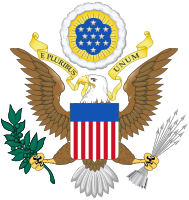
Photo from wikipedia
Abstract This paper explains how the European right to be forgotten violates the free flow of information in society, as evidenced by conflicts with the United States Constitution and ethical… Click to show full abstract
Abstract This paper explains how the European right to be forgotten violates the free flow of information in society, as evidenced by conflicts with the United States Constitution and ethical principles of professional communicators worldwide. As Europe imposes new data protection laws and incorporates the right to be forgotten that promotes censorship through search engine de-linking, United States constitutional law scholars ponder the implications of World Wide Web censorship, while journalists and public relations professionals struggle to understand how accurate transparent communication could occur in an ecosystem that allows for arbitrary information removal and the creation of memory holes. This article explains why the European notion of the right to be forgotten challenges U.S. constitutional law and professional public relations ethics, imperiling the online marketplace of ideas and eroding disclosure of information. The European Data Protection Directive and recent right to be forgotten movements directly conflict with the U.S. Constitution’s First Amendment and professional communications ethics codes. The First Amendment of the U.S. Bill of Rights indicates the specific rights of citizens to freedom from government intervention into freedom of expression and freedom of the press. Recent actions by Google to honor European requests to remove data upon request collide with First Amendment theoretical concepts and contemporary constitutional law. Both the Public Relations Society of America (PRSA) and the International Association of Business Communicators (IABC) construct ethical principles for members that call for the active promotion of the free flow of information and the ethical disclosure of information. The European Data Protection Directive’s right to be forgotten silences these core professional communication ethics and more significantly imperils the robust information exchange in a global society, ultimately altering the discourse and debate in democratic countries. This paper addresses the status of the right to be forgotten in the United States and indicates how adopting such a provision in the United States would violate First Amendment theories, as evidenced by the Marketplace of Ideas Theory, the Meiklejohnian Theory, and the Absolutist Theory, and would counter traditional public relations ethics codes, conducted in a context of dialogic ethics that calls for adherence to core values advocating for transparency, disclosure, and free flow of information.
Journal Title: Public Relations Review
Year Published: 2017
Link to full text (if available)
Share on Social Media: Sign Up to like & get
recommendations!